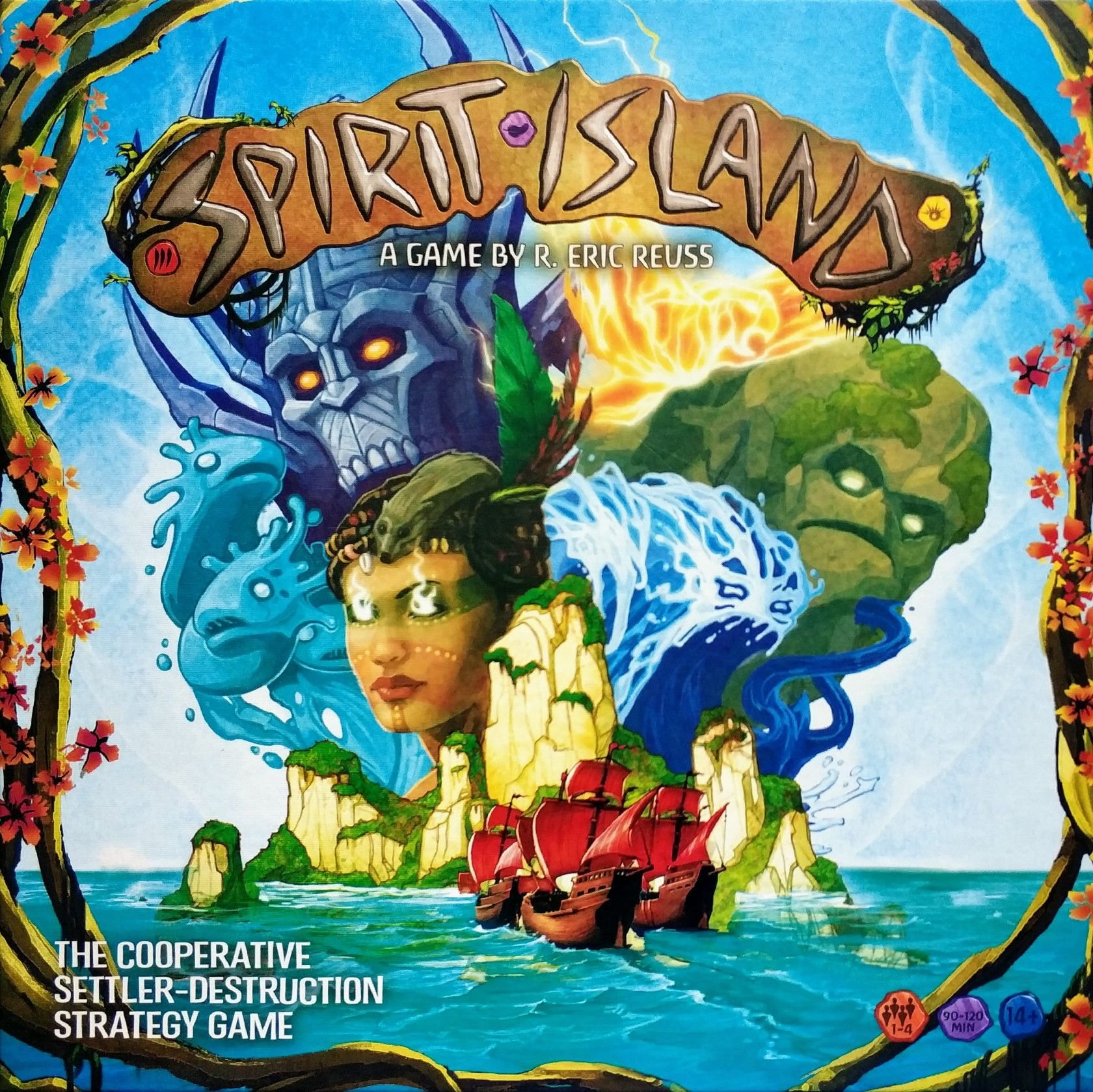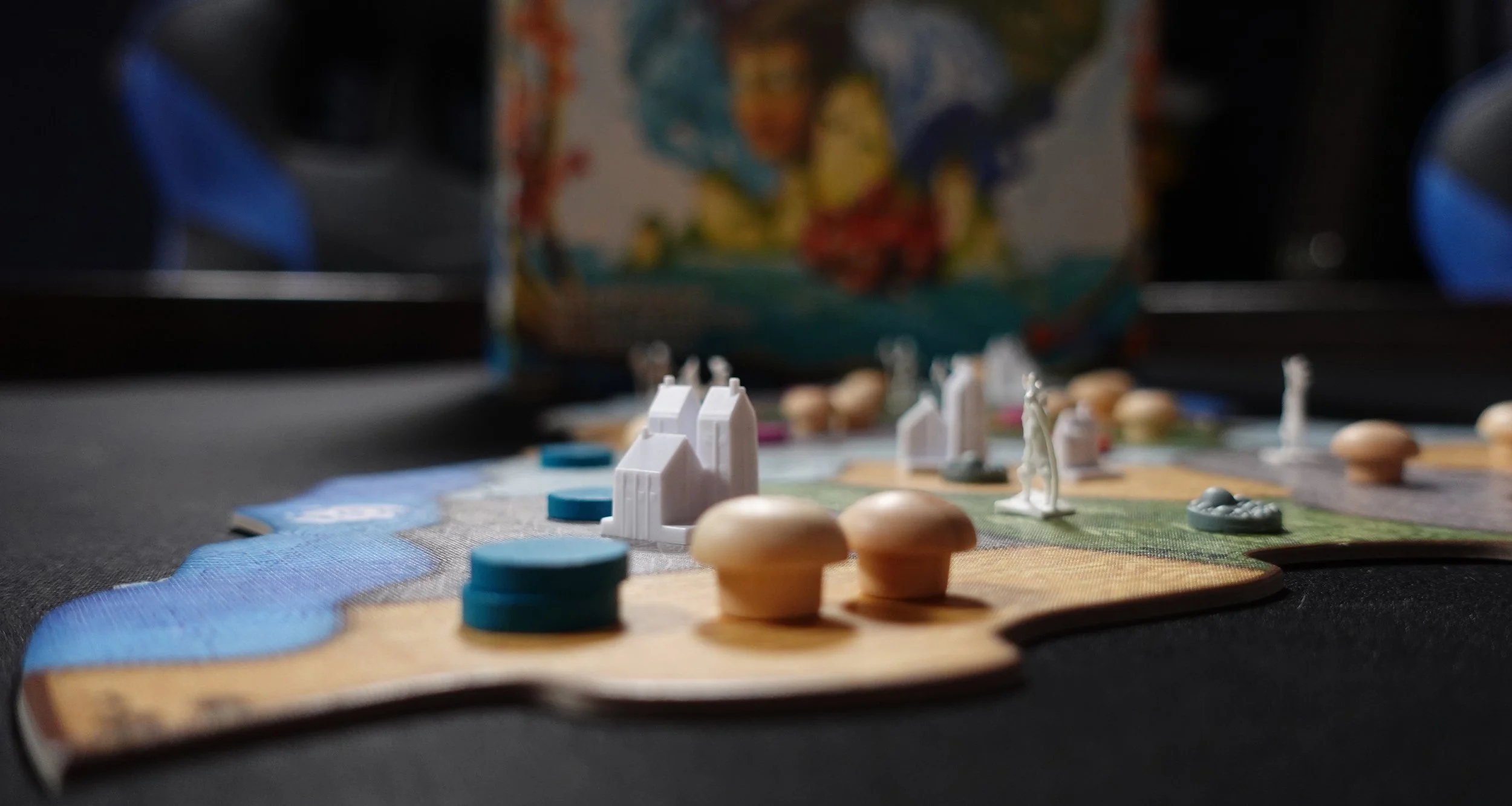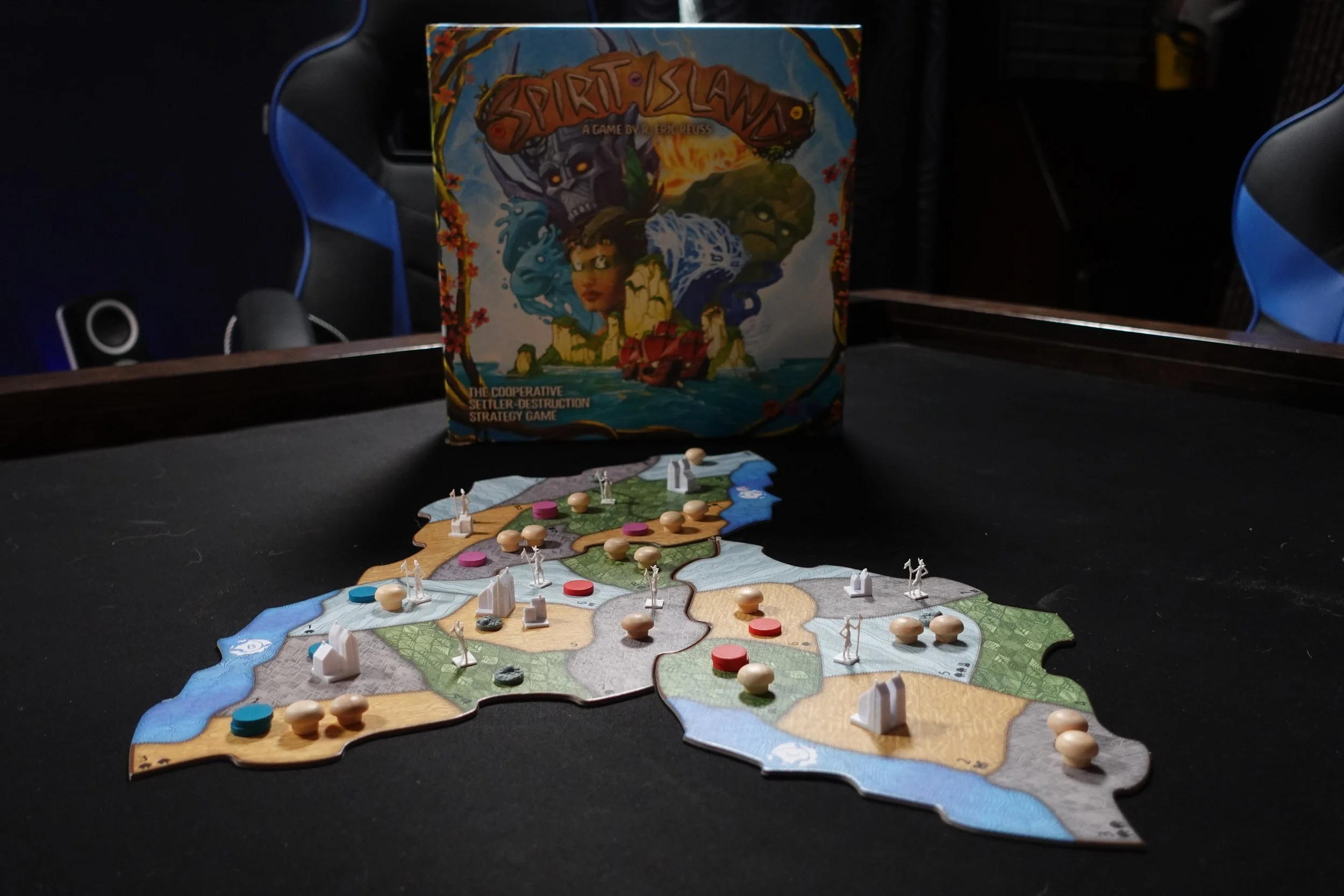A Chat With R. Eric Reuss, Designer of Spirit Island
Spirit Island is our favorite game here at Elevation Games HQ. In fact, it was the game that got us into the hobby.
One year, for Jeremy’s birthday, we both went to our local game store and randomly picked out one game, each. We were vaguely aware that there was this whole world of hobby board games out there. But we knew basically nothing about it.
One of those games turned out to be Spirit Island. Dumb luck.
We were instantly hooked and we never looked back.
So you can imagine how excited we were when R. Eric Reuss, designer of Spirit Island, agreed to answer some questions for us about his own history with board games and his design process.
Let’s start off by talking a little bit about your history with board games. What games did you play early on in the hobby? Were there any that stood out from the others and really made you want to look more into board games?
I've played board games my whole life, starting with mass-market games as a kid, branching out a bit into traditional games (Chess, trick-takers) as a teen along with some games that we might consider closer to hobby gaming? (Dungeon!, Risk, a tiling game called Kaliko), discovering games by Steve Jackson and Looney Labs and Cheapass Games during college, along with Magic:the Gathering and Roborally. And there was a store called Games People Play that I'd make occasional mostly-random purchases at (I remember Nautilus was one), so by that point I was already playing hobby games... but the event which really made me sit up and start looking more actively into Euros was when I got El Grande for a friend's birthday, based purely on an in-joke about Spain,
What made you decide one day that you wanted to design a game that turned the theme of colonialism on its head?
This one's answered in the Design Notes in the back of the Spirit Island rulebook, so I'll pass on it in favor of spending more time on the other questions.
Spirit Island has one of the best, customizable difficulty systems I’ve ever seen in a game. From different adversaries to a dozen other elements you can tweak to crank the difficulty up or down, you can really fine-tune it until it feels just right for your skill level. How did you come up with such a fine-grained system and why was that level of customization important to you?
Thank you! It was important to me for two reasons, both of which boil down to "I played other co-ops and didn't like X, so I tried to do better". The first is that many co-ops I'd tried had pretty chunky, non-granular difficulty systems - sometimes even just "normal mode" and "hard mode". Co-ops thrive on tension and uncertainty: not knowing if you're going to win or lose (or failing that, not knowing how you're going to win or lose). A game that's tremendously enjoyable at a good level of challenge may fall flat if it's a cakewalk or if players get instantly stomped, so I wanted to have a Difficulty system that was fine-grained enough that players could get a challenge that was at least ballpark correct - maybe a touch easier or harder than anticipated, but not to the point where it stopped being fun. The second is that most - maybe all? - co-ops I'd played to that point increased difficulty in a fairly one-dimensional way: start a little further along the escalation curve, 10 spaces between you and Sauron rather than 12, etc. This seemed like a real missed opportunity to vary the game experience; if a game's harder in different ways, it changes how well different types of strategies work and informs all of one's decisions over the course of play. It costs complexity, and results in intrinsic imbalance (making all Spirits equally good against all Adversaries demands either very bland/homogenous Spirits or very bland/homogeneous Adversaries), but I believe the benefits are so worth it.
(Early in playtesting, the difficulty boosts were each individual Banes, and you could choose a set or deal some out at random. But the interactions between them were so strong - you could get such synergies or anti-synergies - that they made estimating the total Difficulty increase really hard; while thinking about how to fix that I came up with the notion of packaging groups of them together as manifestations of a particular nation's colonial efforts, so the synergies could be accounted for as you added additional effects. So, the existing system makes tradeoffs: lower overall variety for the sake of higher Difficulty predictability. Given the variety's still quite high, I think it's a good tradeoff!)
What’s your desert island game? (I had to ask the designer of Spirit Island this question, right?) If you were stranded on a desert island with only one board game, which game would you choose?
I mean... Spirit Island? I still play it for fun even when I'm not working on it! And having it with me would mean I could tinker / do design work, so it's two activities in one. If I weren't allowed to pick from my own designs... perhaps Argent: the Consortium? It's got a huge amount of variability, and I love the gameplay; it's a worker-placement game where there are 5-7 types of mages (workers), an engine-building game where the components of your engine (spells, artifacts, supporters) are also what you need to win, and a game with (semi-)hidden goals which lets experienced players play doublethink games with each other, and which leads to a nicely dramatic reveal at endgame. It's also got a flexible player-count. Second place might be something in the Gloomhaven line, but might also be For The Crown, which isn't as well known - it's a mashup of Dominion and Chess which works vastly better than such a combination has any right to. It's so good! It can run a bit long, but on a desert island that's actually a bonus. However, it's strictly 2p or 4p.
Bonus Question - Where can people go to purchase your game or find out more about what you’re working on next?
Bonus question A: Spirit Island is available at just about any seller of hobby games, or on Amazon. There's also a budget version called Horizons of Spirit Island available through those channels and at some Target stores. (Identical gameplay, cheaper components, supports 1-3p instead of 1-4p, fewer Spirits, and omits the Adversaries + Scenarios for scaling up difficulty as discussed in question 3, but costs between a half and a third as much. It also has a completely different set of Spirits than the base-game, so either serves as an expansion to the other, though all other expansions assume you have the base-game.)
Bonus question B: To find more about what I'm up to, go to my website and sign up for my newsletter from the rightnav - it's very low-bandwidth; I think I'm currently averaging 1 email per quarter, possibly less.
A huge thanks to R. Eric Reuss for taking time out of his busy schedule for this interview. You can follow his work at rericreuss.com.
Buy Spirit Island: https://amzn.to/49wZIYf (Amazon)
Buy Jagged Earth Expansion: https://amzn.to/3vFs3hh (Amazon)
Buy Branch and Claw Expansion: https://amzn.to/4aUfj5j (Amazon)
(When available, we use affiliate links and may earn a commission.)



